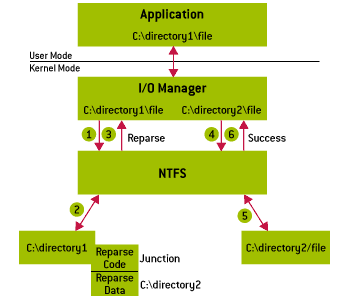13
4
Can an NTFS Junction Point between HDDs cause a bottleneck? Or will the junction be cached in memory?
Specifically, I want to install Steam on a magnetic HDD. This means all the games will be installed there. To benefit from my SSD, I will junction point the games I am actively playing from Steam's directory on the HDD to the SSD.
I was wondering if this would cause performance issue. Every time the game accesses a file, does it need to read the HDD, read the junction point, resolve the new path on the SSD, then get the true file? Or will it the OS cache this re-direction so the performance penalty is only hit the first time?
Thanks!

3The definition of a junction point is directly stored in the responsible MFT entry. As the MFT is cached in memory, I wouldn't expect the HDD to be accessed when working with the linked directory. – Gene – 2014-07-02T08:58:46.143
Thanks! I won't worry about it too much then, unless I start to notice odd slowdowns. – ddtemplar – 2014-07-02T22:56:21.147
2Even if the HDD did need to be accessed to read the junction point, it's tiny -- the read would be over nearly immediately, and only need to happen once as it would get cached. – Adambean – 2015-10-09T13:31:22.617
One side note: If you install the steam application on the SSD you can still change where the game is installed to inside of steam without a junction. – cybernard – 2015-10-12T00:53:32.637